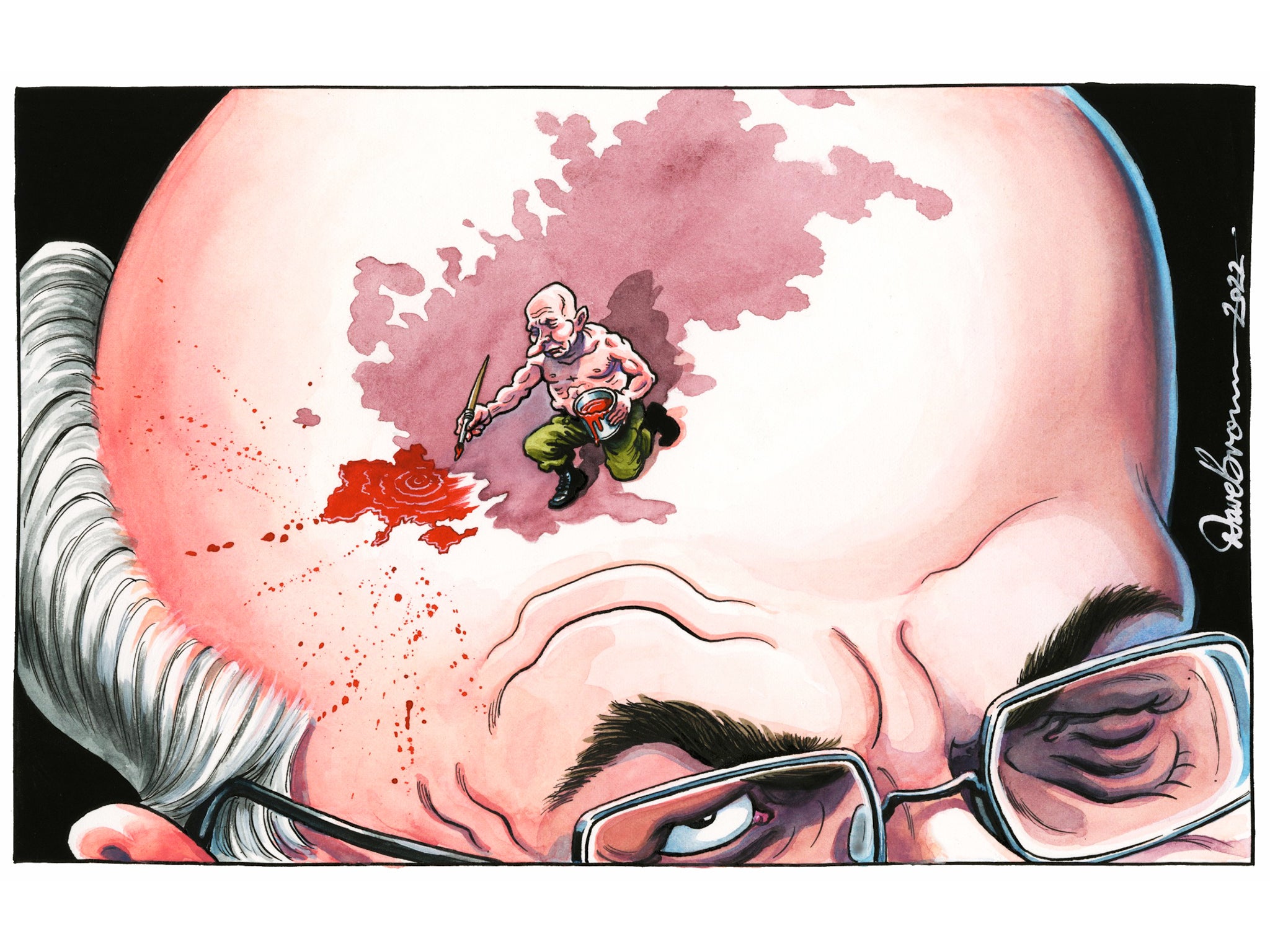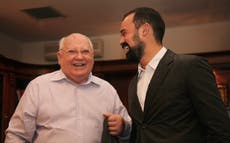Mikhail Gorbachev was a genuine colossus of global politics in the 20th century. What Lenin, Trotsky and the Bolsheviks began in 1917, he wound up a little more than seven decades later. As leader of the Soviet Union from 1985, Gorbachev made decisions – to follow a policy of perestroika (reform) at home and peace abroad – that ultimately created the conditions in which the Cold War could conclude and the Soviet Union would cease to exist.
He helped, in the words of Francis Fukuyama’s famous thesis, to bring about the “end of history”, although in the event that “end” proved to be only a hiatus. Vladimir Putin is trying to reverse the tide of history that Gorbachev surfed alongside. Indeed, today, Gorbachev is a prophet spurned in his own land.
As a child, Gorbachev witnessed at close quarters the centralised brutality of the communist regime. Both his grandfathers spent time in hard labour camps or prison cells; one was tortured for months over allegations that he was involved in a counter-revolutionary organisation.
Yet, in spite of these early experiences, Gorbachev was very much a son of the USSR’s prevailing and all-pervading philosophy of Leninist democratic centralism. His parents were workers on a collective farm, and the teenage Mikhail was awarded the Order of the Red Banner of Labour for outstanding results in bringing in the harvest of 1949. Later, having studied law at Moscow University, Gorbachev immersed himself in politics.
As he rose steadily through the party ranks during the 1960s and 70s, there was little hint that Soviet communism was anything but implacable in following the rigid path it had been set on by Stalin – and, with the occasional deviation, kept to under a succession of later rulers. Gorbachev was a loyal apparatchik, whatever his private doubts. Thus, as he later admitted: “We all kissed Brezhnev’s ass, all of us.”
Sure enough, by the time of Andropov’s premiership, it was clear that Gorbachev was being groomed for the top job, and he was an obvious contender after Konstantin Chernenko’s brief rule. Some of the party’s elder statesmen had suspicions that Gorbachev wanted to set the Soviet Union on a new course – but he had secured key allies, not least in the figure of Andrei Gromyko, and had shown himself capable of running the country when Chernenko was absent through ill health. Moreover, the death of three relatively elderly heads of state in just two and half years played into Gorbachev’s more youthful hands.
Recognising the need to establish his credentials abroad, Gorbachev had also been at pains to forge relationships with key foreign statesmen and women. He visited Margaret Thatcher in 1984, and immediately the pair hit it off; he impressed French president Francois Mitterrand, too. The creation of a viable working relationship with the leaders of Western democracies was to become crucial.
Yet in spite of all this manoeuvring at home and abroad, and despite the fears of some of the old guard, when Gorbachev actually came to power there was little expectation of world-shattering times ahead. The agenda was one of modernisation, not revolution.
This is not to say that Gorbachev was not concerned with openness and transparency for their own sake. But, crucially, he understood – as few others in the USSR cared to admit – that the economic stagnation that had begun during the Brezhnev years would soon become crippling. It was really the desire to avoid economic collapse that drove Gorbachev’s reforms – including the bold engagement with Ronald Reagan that ended the Cold War.
To keep up to speed with all the latest opinions and comment, sign up to our free weekly Voices Dispatches newsletter by clicking here
It takes two to tango to peace, and insufficient credit has been given to Gorbachev for his role. It was he, along with the USSR, who made the lion’s share of the sacrifices and compromises. President Reagan did not end up dissolving the United States, disowning its political and economic system, disbanding Nato and trashing his own political career. Gorbachev saw the end of the USSR (though this was not his intention), wound up the Warsaw Pact, and ended the lunacies of communism; but, job done, he was left with no role.
The end of the Soviet Union was probably inevitable, though it didn’t seem so until relatively late in the day. At any rate, many of his own citizens were left feeling bewildered and humiliated by the sudden loss of empire and of superpower status. Among those disappointed Russians was a young KGB officer serving in East Berlin named Vladimir Putin. By the time President Putin invaded Crimea in 2014, Gorbachev himself may have reassessed his own impact. Still, he was reported to be distressed about Russia’s war of aggression on Ukraine.
Indeed, the great paradox of Gorbachev’s rule is that his grand plans for an economic turnaround were largely unsuccessful, and the West consistently failed to support Russia in its transition to capitalism. Mistakes, as they say, were made.
Unlike Mr Putin, Gorbachev recognised, in the end, that the will of the people was more important than the outcome of its expression. He thus continued to reform, and continued to resist communist hardliners, to the point where the dismantling of Soviet communism became inevitable – all in spite of his own fundamental belief in the philosophy that lay behind it. “Courage” does not begin to describe this achievement.







Join our commenting forum
Join thought-provoking conversations, follow other Independent readers and see their replies
Comments